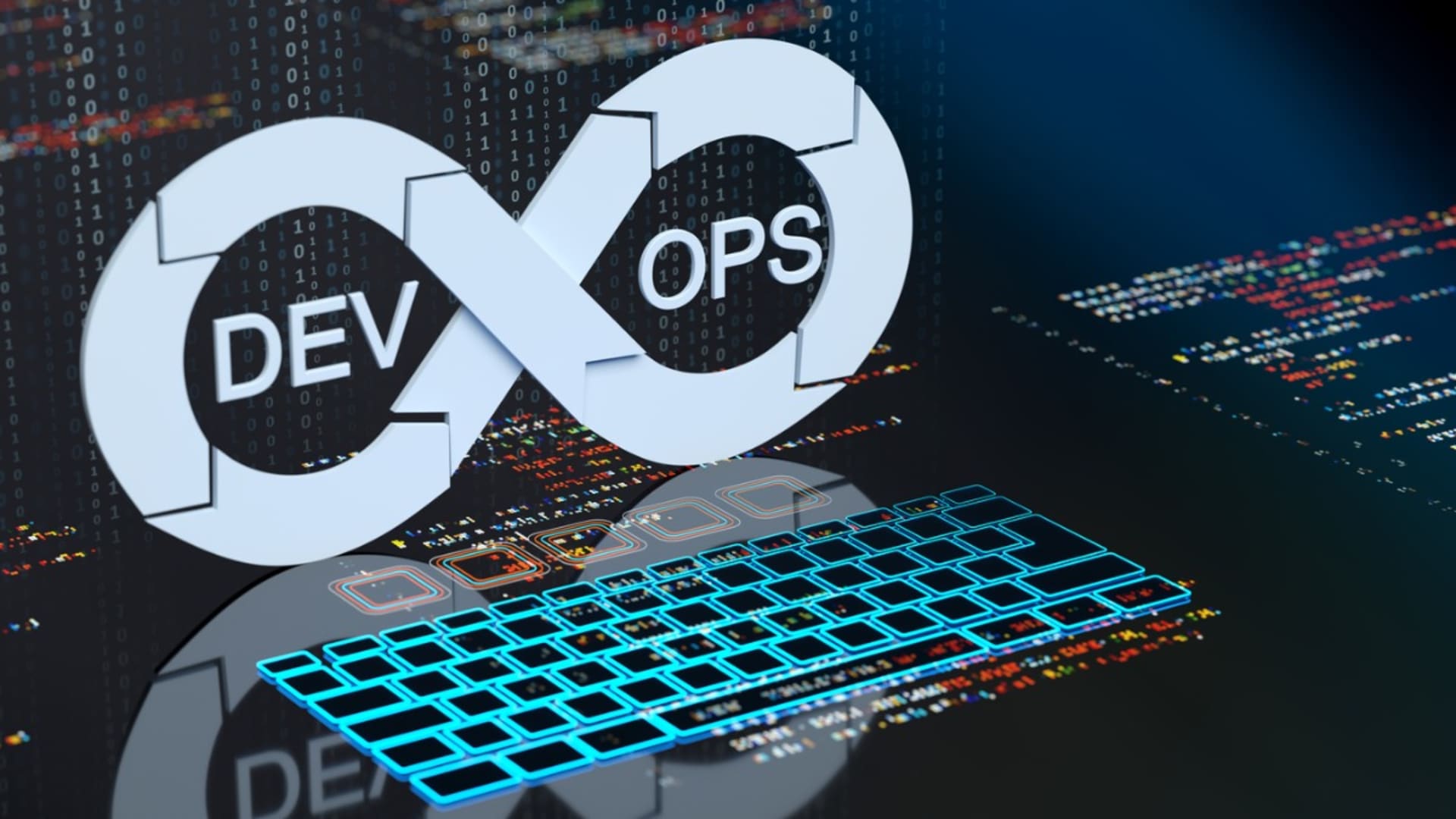AWS DevOps is Amazon’s approach to DevOps, which relies on the company’s cloud infrastructure, tools, and services. In other words, this combination brings together Amazon’s flexible services and DevOps practices to enable a quick way for teams to develop and deliver software products.
By leveraging AWS tools, Amazon’s DevOps approach allows companies to easily manage infrastructure, deploy code, automate software releases, and monitor performance all across the board. With AWS DevOps, developers can implement continuous integration and continuous delivery (CI/CD) in their pipelines more easily.
AWS DevOps Engineers Skills
Any company that wants to fully take advantage of AWS DevOps will need engineers with the proper skills to do so. Although you could arguably say that any cloud computing developer could do a decent job, the reality is that AWS DevOps requires specific expertise, including an in-depth knowledge in the following:
- Cloud Computing: AWS encompasses Amazon’s cloud computing services, so it’s evident that AWS DevOps engineers need to be experts in the cloud and specifically have in-depth knowledge of AWS services, tools, and best practices. The best AWS DevOps developers even have knowledge of other, non-AWS services and tools.
- Infrastructure as Code (IaC): IaC is all about managing and provisioning data centers through machine-readable definition files, a process that includes physical equipment, virtual machines, and configuration resources. Thus, AWS engineers need to know everything about IaC, including how to use tools such as Terraform and AWS Cloud Development Kit.
- Continuous delivery (CD): CD is a cornerstone of DevOps, as this is an approach through which development teams build software in short cycles while ensuring reliable releases at any time. CD’s goal is to increase the speed and frequency of the building, testing, and release phases of software development. That’s why AWS engineers need to know everything about CD, its tools and systems, and their integration with other tools to create a more sophisticated delivery pipeline. That includes understanding AWS services like AWS CodeBuild and AWS CodePipeline and non-AWS tools like GitHub and Jenkins.
- Operations: Given that’s right there in the name “DevOps”, this is another obvious skill for AWS engineers to have. In this case, operations refers to monitoring production systems to ensure their proper functioning. Additionally, operations is about alerting about issues and helping to solve them as they happen. In certain pipelines, the AWS engineer might also need to have knowledge of database administration.
- Containers: Modern deployment practices are embracing containers at warp speed, which turns the knowledge of containerization systems and orchestrators almost into a must-have for AWS developers. This means that these developers need their way around Docker Engine, Docker Swarm, Kubernetes, container registries, and many more tools, apps, and services.
- Collaboration: DevOps has always been about bridging gaps between teams, so it’s natural that an AWS role calls for a knack in collaboration. Saying that implies that AWS engineers need to be skilled in fluid and straightforward communication with their peers, as they’ll be working alongside one another to guarantee the continuous delivery of products and services.
Most used tools by AWS DevOps
AWS is an extensive cloud computing environment that offers numerous services and tools for engineers of all kinds. When it comes to AWS DevOps, Amazon has a wide range of cloud-based applications to build and deploy software. While they might be too many to list, there are some that are essential for engaging in AWS DevOps:
- AWS Cloud Development Kit Open-source development framework that supports a wide variety of programming languages and that serves as a basis to model and provision cloud application assets.
- AWS CodeBuild Fully-managed continuous integration service that compiles source code and runs tests to then produce ready-to-deploy packages. CodeBuild continuously scales and processes builds in a concurrent manner.
- AWS CodeDeploy Service that allows engineers to automate deployments to several compute services, from AWS Lambda to on-premises servers. By automating that process, it reduces the potential risks associated with manual operations.
- AWS CodePipeline Service that automates release pipelines and ensures quick app and infrastructure updates. CodePipeline can automatically build, test, and deploy your releases every time there is a code change.
- AWS CodeStar Platform that provides a proper environment for fast development, building, and deployment of applications on AWS. It fosters collaboration by allowing multiple owners, contributors, and viewers to any project.
- AWS Device Farm Application testing service for web and mobile apps that provides features to test across browsers and devices. Device Farm can run concurrent tests and generate detailed logs to quickly identify issues.
How to Hire AWS DevOps Teams
Hiring DevOps can be a tricky thing. As it often happens in the tech world, finding AWS professionals with the right skills and experience is a time-consuming endeavor that requires you to know precisely what you’re looking for and where to search for it. What’s more, given the relevance of AWS DevOps in today’s landscape, the process will have you competing for the same talent with other companies.
That’s why it’s important to define a search strategy to find the right AWD DevOps engineers. The resulting roadmap might include the following steps:
- Define your requirements for the role: Consider your specific needs, your business goals, and the skills that make your ideal candidate.
- Browse through the different alternatives to find talent: Put out job postings in social media and job portals, get in touch with tech companies with AWS services, and contact freelancers.
- Make a short list of candidates that might fit your requirements: It doesn’t matter where they come from, you’ll sift through them in the next step.
- Analyze pros and cons of each candidate before interviewing them: Here, you’ll need to consider whether a particular type of engagement is the best fit for you (freelance, outsourcing, or direct hire? Remote or in-house?).
- Interview your candidates thoroughlyUse a comprehensive questionnaire that covers technical aspects as well as soft skills. You can find some essential questions in our Hiring Guide below.
- Pick the candidate that best suits your needs: Ideally, you’ll have found the best candidate at this stage. Be alert, as the best one doesn’t necessarily fit entirely in your ideal candidate, but given the talent shortage, that shouldn’t be an issue.
The plan outlined above can serve as a guide for hiring in-house or engaging with a freelancer or outsourcing company. However, each of those processes have their own specific aspects you’ll have to consider. Use this template to inform your own search process rather than using it as is.
AWS DevOps Interview Questions
What is AWS DevOps?
It’s a DevOps approach using Amazon Web Services products, tools, and platforms. Its goal is to automate tasks, help with deployments and delivery, and guarantee better collaboration between the development team and the operations team through cloud computing.
What are the benefits of using AWS DevOps tools?
The main benefit of using AWS for DevOps is taking advantage of its wide range of robust cloud-based tools and services. This will relieve teams from having to come up with their own ecosystem, which might lead to integration issues. Additionally, using AWS guarantees that the DevOps team has access to flexible, secure, and powerful tools that are readily available and prepared to boost collaboration. What’s more, AWS tools can provide fast and automated results for increased productivity and efficiency.
What does CI/CD look like in AWS DevOps?
AWS offers tools that automatically build, test, and deploy applications to a desired location (be it local or an AWS instance). By using a combination of CodePipeline to build the CI/CD services and CodeBuild and CodeDeploy, an AWS DevOps engineer can ensure the continuous integration, delivery, and deployment of software solutions.
How to implement AWS code in AWS DevOps?
By using CodeDeploy. This system automatically deploys for any instance, be it on Amazon EC2 or on an on-premises server. This system is highly beneficial for DevOps, as it helps development teams to deploy new features easily and quickly, thus getting rid of the potential errors of manual deployment .
Why would you use Amazon ECS in DevOps?
Amazon ECS is a system to manage containers that provides a streamlined integration with Docker. This allows for AWS DevOps engineers to run apps on EC2 instances through a managed cluster.
AWS DevOps Profile
A great AWS DevOps developer is a professional that has in-depth knowledge in a myriad of cloud technologies—even beyond the AWS ecosystem. That’s because there might be projects that call for integration with non-AWS tools. That’s why, one of the first things that make up the ideal AWS DevOps candidate is a technical knowledge of the most important tools in the AWS environment and some of its equivalent from competing providers (mainly, Microsoft Azure).
Additionally, the AWS DevOps profile encompasses other equally important practices, such as inventory and configuration management, containerization and container orchestration, and implementation of CI/CD practices in a cloud environment. Having familiarity with control systems is also a great advantage for AWS DevOps engineers, as systems like Git and Mercurial help in developing apps in the most efficient way.
Finally, it’s worth mentioning that there are soft skills that AWS DevOps engineers definitely need. Communication is particularly important, as they’ll need to collaborate with other team members in orchestrating cloud-based efforts. Attention to detail and problem-solving skills are also a must, given the high-complexity nature of the many moving parts that make up an AWS DevOps environment.
AWS DevOps Certifications
While there are many certifications out there that might further the career of a DevOps engineer, anyone that wants to become a serious AWS DevOps need the AWS Certified DevOps Engineer – Professional certification extended by Amazon.
This credential validates a professional’s ability to automate tests and deployments of AWS infrastructure and applications. It also certifies that the holder has the critical skills to implement a wide range of cloud initiatives using the AWS ecosystem.
Other certifications that might help AWS DevOps engineers include the Continuous Delivery Ecosystem Foundation℠ certification and the DevOps Leader® certification, both from the DevOps institute. While not related to AWS, both credentials certify that a professional has in-depth expertise in a couple of areas that are essential for DevOps as a whole.
If you enjoyed this, be sure to check out our other DevOps articles.







